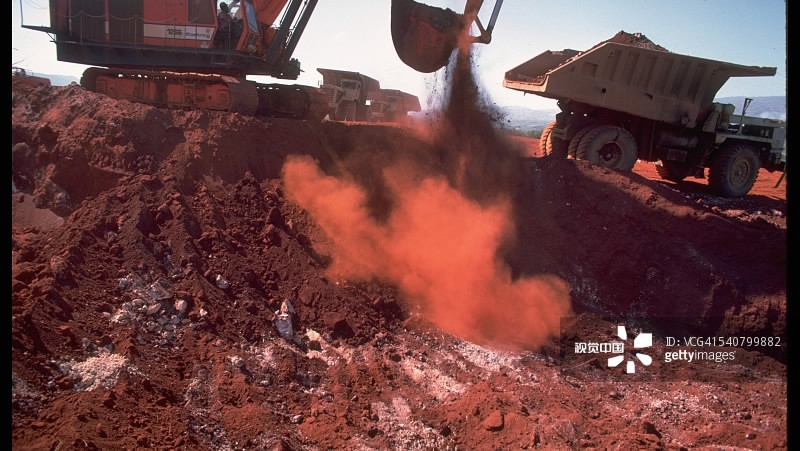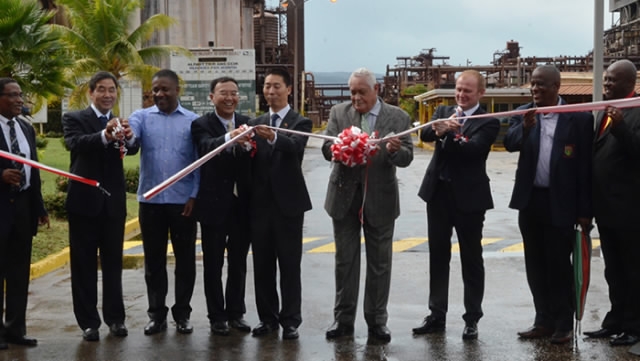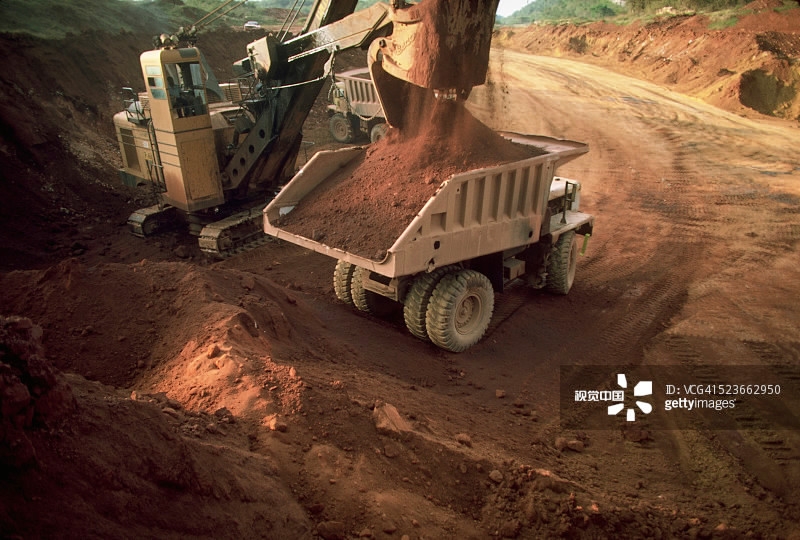
China
12:13, 16-Feb-2018
Chinese province eyes billion-dollar Jamaica investment
CGTN

China's "Belt and Road" footprint in the Caribbean seems poised to get much larger.
Last September, Jiuquan Iron & Steel Company (JISCO), based in the northwestern Chinese province of Gansu, finalized a 300-million-US-dollar deal that gave it a massive foothold in Jamaica's important bauxite industry.
It formally took over the 1.6-million-tonne Alpart alumina refinery from Russian mining company Rusal, resuscitating a plant that had been closed in 2009 in the wake of the global economic crisis.

Jiuquan promised then to invest two billion US dollars in upgrading the factory and building a 500,000-tonne-a-year aluminum smelter that officials linked to the Belt and Road, China's global infrastructure and trade initiative.
Now the province's government itself says it is willing to invest up to three times that amount (six billion US dollars) to develop an industrial park and special economic zone alongside the JISCO/Alpart development in Nain in the southwestern parish of St. Elizabeth.
The Jamaican Prime Minister, Andrew Holness, was on hand when Gansu's vice-governor, Huang Qiang, signed the framework agreement for the project in Kingston, the island's capital, a government statement this week said.

Jamaica's Minister of Mining Mike Henry (4th right) cuts the ribbon to officially reopen the Alpart refinery in Nain, St. Elizabeth, on November 24, 2016. Assisting are officials of new owners Jiuquan Iron and Steel of China and the previous operators UC Rusal of Russia. /Jamaica Gov't Photo
Jamaica's Minister of Mining Mike Henry (4th right) cuts the ribbon to officially reopen the Alpart refinery in Nain, St. Elizabeth, on November 24, 2016. Assisting are officials of new owners Jiuquan Iron and Steel of China and the previous operators UC Rusal of Russia. /Jamaica Gov't Photo
Not only were top officials from JISCO present as well, but also senior executives from Chinese conglomerates COSCO Shipping and China Construction, underlining the magnitude of the planned investment.
"The size of the investment is of significance for both Jamaica and China in that it is the largest investment ever contemplated in Jamaica, and it is the first overseas investment coming for Gansu Province," the statement said.
"It is intended to move Jamaica from exporting raw materials to developing value-added manufacturing and fabrication industries, led by the bauxite/mineral sector."
Alpart is well up and running as evidenced by the arrival on February 5 at the eastern Chinese port of Lianyungang of the first alumina cargo from the plant. Bauxite is the raw material used to produce aluminium.
The shipment, weighing 34,200 tonnes, landed after a voyage of more than 30 days.
It arrived as aluminum smelters in northern China prepared for the lifting of winter restrictions of their output in mid-March, Reuters reported.
When the Alpart acquisition was first announced in 2016, the Gansu vice-governor had referenced the Belt and Road link.

Loading of bauxite /VCG Photo
Loading of bauxite /VCG Photo
"Jamaica is the focus for China to carry out production cooperation in the Caribbean area … the acquisition of Rusal Alpart Alumina Refinery is a critical measure for Gansu Province to carry out the strategy of 'Belt & Road' and further promote international cooperation that is in line with our nation's industrial policy," Huang was quoted as saying then.
Few details have been announced about the special economic zone, which will benefit from generous tax concessions, but China's ambassador in Kingston Niu Qingbao has said in the past that manufacturing and modern agriculture on post-mining land will be the focus.
"That means hundreds of industrial jobs, decent income for thousands of farmers, better trade terms and better supply of vegetables, beef and dairy," he said in remarks published on the embassy's website.
The Jamaica government is so keen to get the project off the ground that it has assigned a minister in the ministry of economic growth and job creation to help the ministry of mining in negotiations with the Chinese side.

SITEMAP
Copyright © 2018 CGTN. Beijing ICP prepared NO.16065310-3
Copyright © 2018 CGTN. Beijing ICP prepared NO.16065310-3